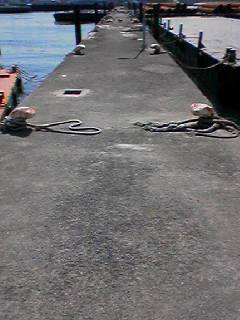« August 2006 | Main | October 2006 »
September 12, 2006
The Doux Commerce and Insular Urbanity: the Cycladic Case
Looking upon such places as Ermoupoli – the city of Hermes, patron of merchants among others –the capital of the Cycladic island of Syros and the greatest Greek port until overtaken by Athens' Piraeus well in the 19th century, one indeed cannot help wondering at the little miracle of mankind's history: that mere flow of material wealth through a certain nodal point can make such place so eminently rich and prosperous.
Adding no other actual value except the "mere" logistics of transport and distribution, the marvellous human activity of commerce is nevertheless capable of generating very real profit and affluence at the hubs of its traffic. A major urban centre of the Cyclades archipelago, this settlement of several historical layers boasts a large harbour with big depots and customs buildings, tall and rich-looking white mansions along and beyond the waterfront – unusually high by Aegean island standards with some four stories and looking more Italian than Greek in a way with their windows of Venetian blinds – a palm-shaded spatial central square with a big theatre a stone's throw away, after national independence the most important stage of modern Greek drama. These user-friendly and airy urban spaces are even contrasted with the more ancient and modest labyrinthine settlements of white cubes of the old town spreading over the steep hillsides above the port. All that in a settlement of hardly twenty thousand stable inhabitants, but self-confidently urban and one might almost be tempted to say aristocratic in the awareness of its position.

It is undoubtedly the relative importance and function a settlement plays, rather than its absolute size, what makes it "urban". For the same phenomenon is repeated on different scale in even such miniscule places as the Hora ("capital") of Andros (another member of the Cycladic archipelago): a settlement of merely two thousand-odd souls, but still fulfilling proudly and conscientiously the part of the centre of this comparatively large if sparsely populated island. It has all the polished shop-windows, lively outdoor cafés, appropriate density of squares, alleys and housing blocks, plus a highly sophisticated archaeological and modern arts museums, everything a Westerner commonsensically relies on to tell a city from a village.
It equally defies common intuitive understanding that it is primarily from the mainland to the islands – and not the other way round – that the migration flows used to head in the ancient past. For it was the islands here that often were the primary centres from which mainland was explored, appropriated and cultivated: the tiny arid place of Andros founded four important colonies, including Aristotle's later home Stageira. One feels tempted to try and feel the insular space through the preferences of the archipelago's ancient inhabitants: it was possibly precisely the manageable and clearly delimited size, the properties – on a communal scale – of an animal's safe lair, what might have been attractive. It brings to mind the very numerous Jómon communities of Neolithic Japan, which almost invariable settled not in the obvious alluvial low-lying flatlands by the major rivers, but mostly on that rim of the mountain foothills, the first step a valley makes toward the peaks, the space where you can lean your back against the hillside and feel safe. When left alone in an empty and questionably hospitable landscape one might instinctively tend to such sort place to rest, think things over and set up a base-camp. With the islands like Cyclades, small, numerous, scattered seemingly within a stone's throw of each other, this might have been precisely the point advantage for the early settlers.
The classical narrative scheme employed to explain away Greece is typically the "commercial" one (dare I say "Montesquieuesque"). Ionic and Doric inhabitants of the relatively resource-poor coasts and islands of the Aegean sea were from very early on forced by the constraint of their environment to creatively engage in commercial exchange which soon provided them with unexpected technological, cultural and in turn even political advantage, bringing about one of the greatest leaps of civilisation in human history. Seeing the arid Cycladic islands at the peak of summer, with the turquoise blue sea clearly by far the most inviting and friendly of natural elements, such sociological-geographical explanation seems almost plausible. Taking to the seas to pursue commerce for shortage of other opportunity would over ages have cultivated the spirit of self-confident independence – which easily translates as freedom – in the individual members of the communities who in the end carried the same spirit over to the actual arrangements of their polities. Thus the ideal of free citizen as public participant in the political life of his city-state would have emerged along with the thriving culture and arts reflecting such lively and fortunate social and political circumstances. But like most stories we have invented to give an appearance of continuous rise to our history, this one too seems far too neat and logically tidy to be reliable.
Posted by david at 01:28 AM | Comments (1)